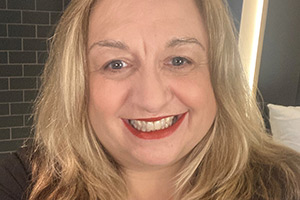In praise of Open All Hours
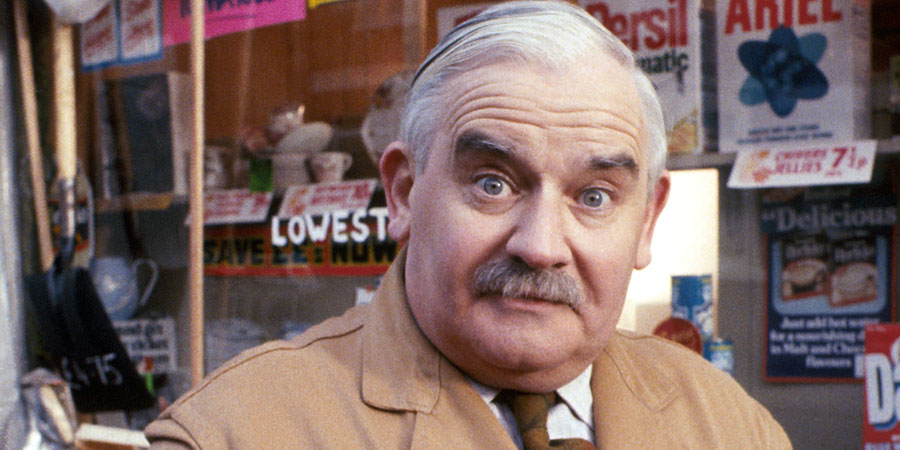
'Granville fer.. fer.. fetch a cloth'.... was the first line of Open All Hours, the sitcom which started life as one of seven pilots for actor Ronnie Barker in the aptly named Seven Of One series on the BBC in 1973.
I've never thought Open All Hours has got the praise it deserved. Maybe it's always lived in the shadow of its Seven Of One stablemate Porridge (that started life as a pilot in this series titled Prisoner and Escort). Porridge is considered one of the greatest sitcoms of all time, and Fletcher is Barker's tour de force in terms of characters, but that doesn't mean Arkwright and Co shouldn't be considered a classic. In a 2004 BBC poll of the greatest sitcoms of all time, Porridge came 7th but Open All Hours was just a wafer-thin slice of boiled ham from the shop's bacon slicer behind it, in 8th place.
So what makes Open All Hours one of the greats?
Well, it's a combination of superb acting, perfectly drawn characters, astute writing, and on-screen chemistry, and when they all work together, they create comedy gold.
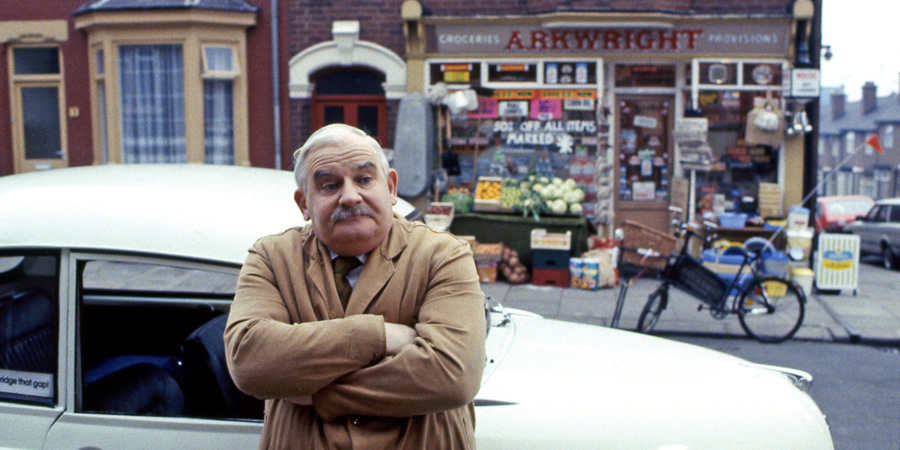
The 1973 pilot had all the essential ingredients of what came later, although the theme tune is different. Max Harris's bold Seven of One theme seems harsh compared to his lovely brass band arrangement of Alice Where art Thou?, which they used for the series.
Nurse Gladys Emmanuelle - the object of Arkwright's unfulfilled desires for so long - was played by Sheila Brennan and not Lynda Baron in this pilot. Possibly because Lynda came to embody the character, this bit of original casting jars, and Shelia's Irish Nurse Gladys is nowhere near as warm as Baron's version.
The stutter and till - both ideas Barker added to the show - were there. The till's faulty spring clip was not quite as dramatic as in later years, but still deadly, and missing the addition of the tin on top that fell as it shut, always providing a guaranteed laugh.
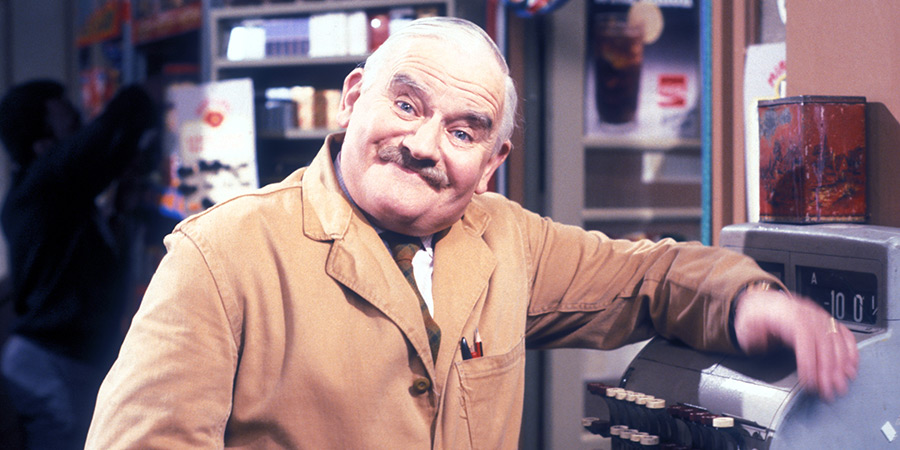
The stutter seemed worse in the pilot and was always going to be controversial, although a surprise endorsement proved its comic value. In Barker's autobiography, It's Hello from Him, he revealed that he received a letter which said, 'We are a family of stutterers...', and his heart sank, but what was to follow, he was pleasantly surprised to read, was that the family loved Arkwright and found him hilarious.
Arkwright's meanness with money became more pronounced as the series went on. Again, in the pilot, he was canny but he wasn't as tight, even letting Granville take a couple of choc-ices for him and a potential lady friend. Well, I say take, he did ask him to put his money in the till... but not straight away! There was even a softer side to his view on Granville's love life, when he told his nephew to go after the girl when she left the shop and they hadn't even closed yet! Supping his beer out of the bottle behind the counter, with a wry look, he tells Granville, 'go and fritter away the golden moments of your youth'.
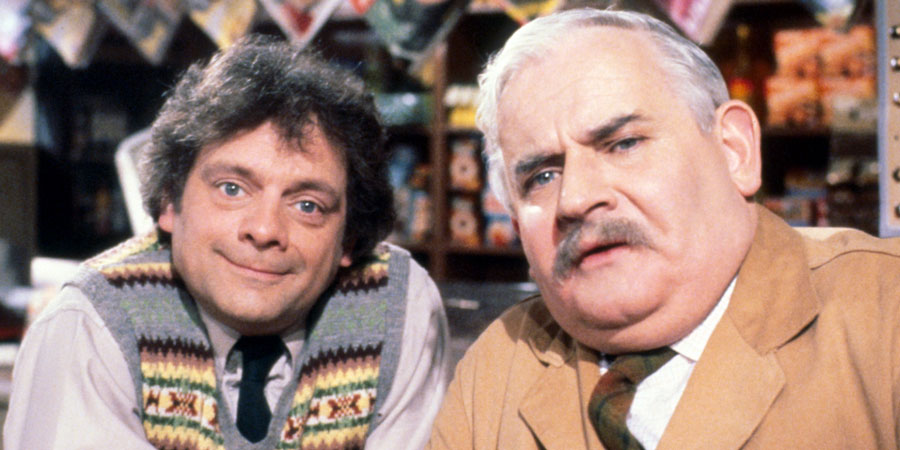
The relationship between Arkwright and Granville is pivotal to the whole series. Making them uncle and nephew gives it a different dynamic to traditional father and son sitcoms where the relationship can be toxic, like in Steptoe And Son. There's much more warmth here between them and, although Arkwright might want to limit Granville's fun, it's not with any malice, more with a feeling of protecting him from the harm of the modern world, a world Arkwright neither understands nor wants to understand.
A lot of this warmth and humour comes from Ronnie Barker and David Jason's real off-screen relationship, which was based on mutual trust and admiration. Jason considered Ronnie 'the governor' and their chemistry was there from the very first moment in that pilot. You can't manufacture magic like that, it's organic and comes from the writing and acting. When Arkwright bids his nephew to fetch a cloth and Granville puffs out his cheeks in weariness and exclaims 'Why me?', we know the power dynamic of the two men, we see the age difference, the pride of Arkwright in his shop, and the resignation from Granville that this is his existence.
That economy of writing comes from the pen of Roy Clarke, creator of the show and a man whose comic observations of life are often darker than we think, setting one episode around the funeral of an old school friend of Arkwright's or never saying why Granville's mother died so young, it was just accepted that he get on with it. If you look back at his body of work - such as Rosie, Keeping Up Appearances and Last Of The Summer Wine - there's a melancholy there in many of his characters. A quiet resignation that this is all life has to offer and although they may be more outside or just around the corner, they can't quite touch it.
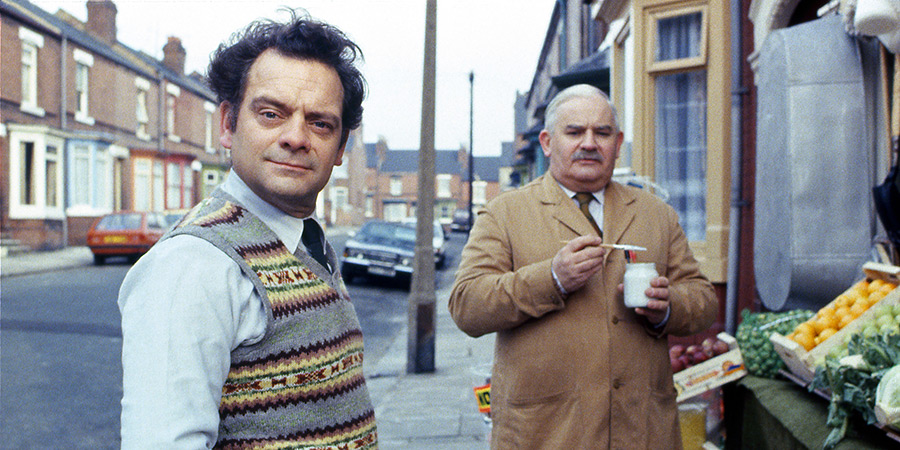
Never is that melancholy more prevalent than in Granville, who at 25 is still 'the errand boy' on a shop bike piled high with boxes of groceries and fantasising about whether the rumours are true about 'her at number 87'. Granville never really had a childhood and, as a result, has never grown up, partly because Arkwright has never allowed him to. The world is big and scary to Arkwright so stick with what you know, but to Granville, it's a mystical place of fast cars, flash clothes, parties, and girls. In reality, it's probably not, it's full of the same streets the shop is on, but Granville fears he's missing out and everyone else is having a good time while he's stuck behind the counter every night until 9 o'clock sweeping up and fetching a cloth.
Granville: I've got the blood of poets and lovers in my veins.
Arkwright: Yes, And at least one electrician.
Granville's whimsical thoughts and fanciful nature were eventually put down to him being half-Hungarian; his mother, Arkwright's dear departed sister, being something of a one-for-the-fellas. The jokes about Granville's mum's easy nature don't sit too well when you watch it now but the other running gags of the death trap of a till, the creaky shop bike, and Granville as a nearly man never quite getting the girl are all timeless.
Granville: You'd think the word would get about that here I am on the threshold of manhood willing to be coaxed out of my bicycle clips.
Clarke's writing is lyrical, cheeky, and full of truth but never wasteful. There's always a gag but most importantly there's always the character's relationships at the heart of every line. This is comic writing that an actor dreams of delivering. When Arkwright muses and admires the nurse's ample behind, he says:
I want you to marry me, Gladys Emmanuel, there's nobody appreciates your shape more than a member of the gggg - grocers federation. I wonder what it would look like with a bit of parsley round it?
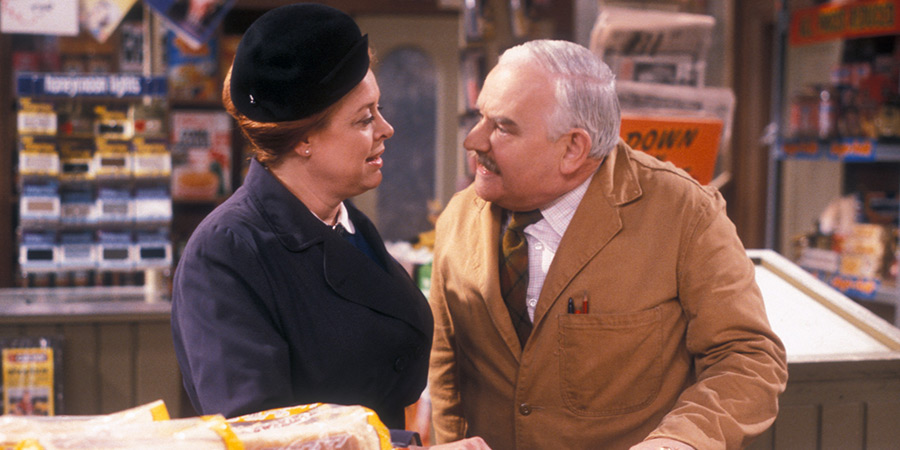
You feel every bit of pent-up lust and endless longing to peek inside her boudoir. I was never sure Arkwright wanted to marry Gladys, although he asked her to all the time, I doubt he would have paid for the wedding. What he enjoyed was the endless tug-of-war that was their engagement, full of give-and-take but never any conclusion; a constant chase and battle of wits.
Nurse Gladys was more than a match for Arkwright and didn't suffer fools gladly. However, there were moments of flirtation, such as when a bottle of sherry loosened the buttons on her blouse or when Arkwright circled the street on the shop bike, and - as he passed her window - the nurse held up a pair of her frillies to prove the vast interlock bloomers on her washing line were her mother's, and not her's. But she was never going to leave her mother alone or move into that shop without a massive re-haul of the furniture and appliances.
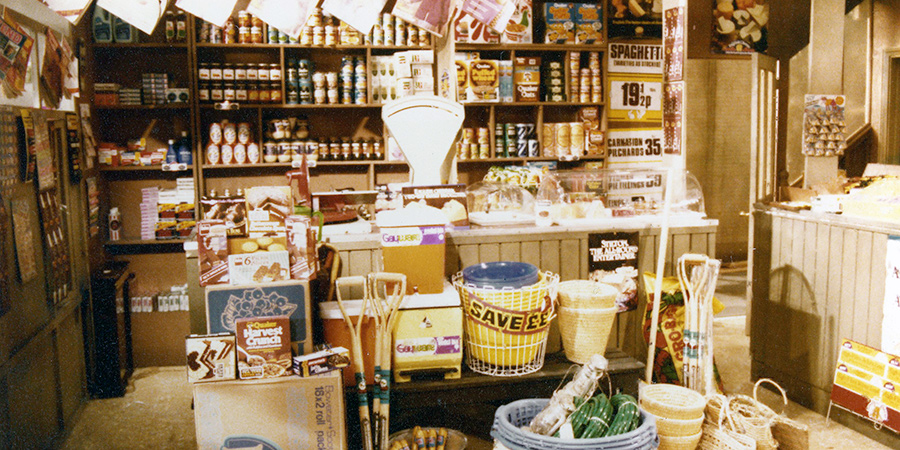
The shop was like a character in its own right. It was packed to the rafters with everything you could imagine, most of it out of date and all of it overpriced. Here you could buy sweets from proper glass jars; a quarter of boiled ham; or 2 ozs of corned beef, sliced for you on the counter. The breadman delivered rolls and teacakes fresh every day (unless he'd dropped them on the floor first); you could get a pair of tights that had been on the spike for the VAT receipts and had a hole straight through them; a single plaster for 4 pence; and, now and then, there would be be a special offer, like tins with no labels on them or a mysterious product said to boost your love life that looked suspiciously like McVitie's Jamaican Ginger Cake.
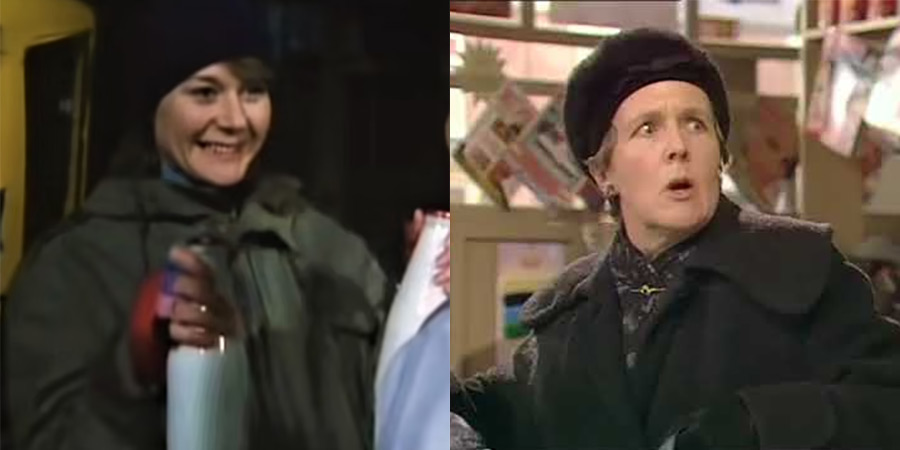
A mark of a great sitcom is also the ensemble of characters surrounding the main players, and the talent on display are some of the great female comic actors of their generation. Stephanie Cole as the Black Widow, Mrs Featherstone, who becomes more beguiled by Arkwright's tight grip on money as each series went by; Barbara Flynn as the milk woman, an object of Granville's desires and probably the only woman to make a wooly hat look sexy especially at 6 in the morning; Kathy Staff as Mrs Blewitt, full of gossip and enquiring after the price of tinned meat; and Maggie Ollerenshaw as the dithering Mavis who could never make up her mind. What a supporting cast!
After that initial pilot in 1973, there was quite a gap before any full series was made. It was 1976 that Series 1 came to fruition. This time complete with the Max Harris theme that became synonymous with the show and Lynda Baron as Nurse Gladys... but it didn't do as well as hoped on BBC Two and, after low ratings, it wasn't recommissioned. Repeats on BBC One in 1981 reignited an appetite for the miserly shopkeeper and his daydreaming nephew and with Going Straight coming to an untimely end with the sudden death of Richard Beckinsale, Ronnie Barker was ready to return and a second series was commissioned. There were 26 episodes in total with Series 3 in 1983 and Series 4 in 1985, but - by then - the seeds of retirement were in Barker's mind, and although rumour has it that Roy Clarke wanted to continue, Barker put up the closed sign on Open All Hours.
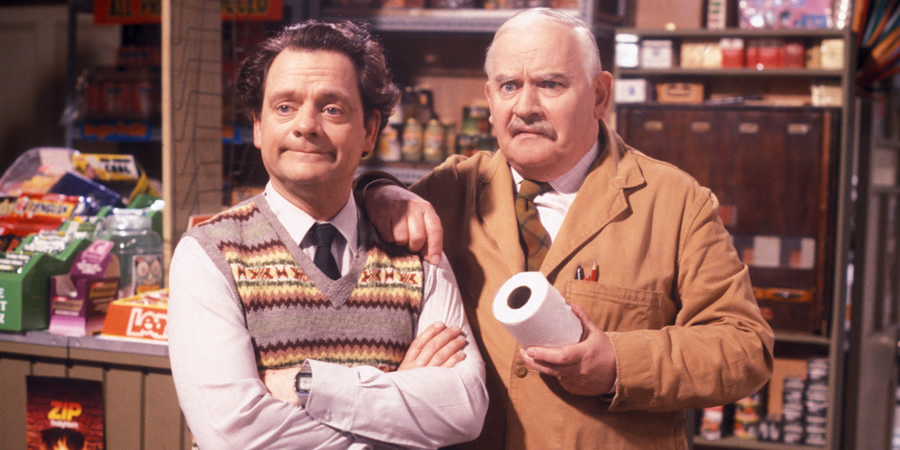
Arkwright concluded each episode by packing away all the items from outside the shop and closing up for the day. There was a quiet reflective quality to these vignettes and his musings wrapped up each story nicely. As the show progressed they became him talking to God and offering up a prayer, usually to keep Granville away from loose living or to hope that the nurse would relent and let him finally see inside her bedroom. They often ended with a chuckle or a smile, but it was a daring device to not have a huge gag to end each episode.
Open All Hours may languish in the shadow of Slade prison, and Porridge will probably always be cited as Ronnie Barker's finest work, but take another look inside Arkwright's shop and in amongst the tins of mulligatawny soup and quarters of licorice torpedoes lies some brilliant comic lines, beautiful acting, heartbreaking realism and, big laughs.
Help us publish more great content by becoming a BCG Supporter. You'll be backing our mission to champion, celebrate and promote British comedy in all its forms: past, present and future.
We understand times are tough, but if you believe in the power of laughter we'd be honoured to have you join us. Advertising doesn't cover our costs, so every single donation matters and is put to good use. Thank you.
Love comedy? Find out more

